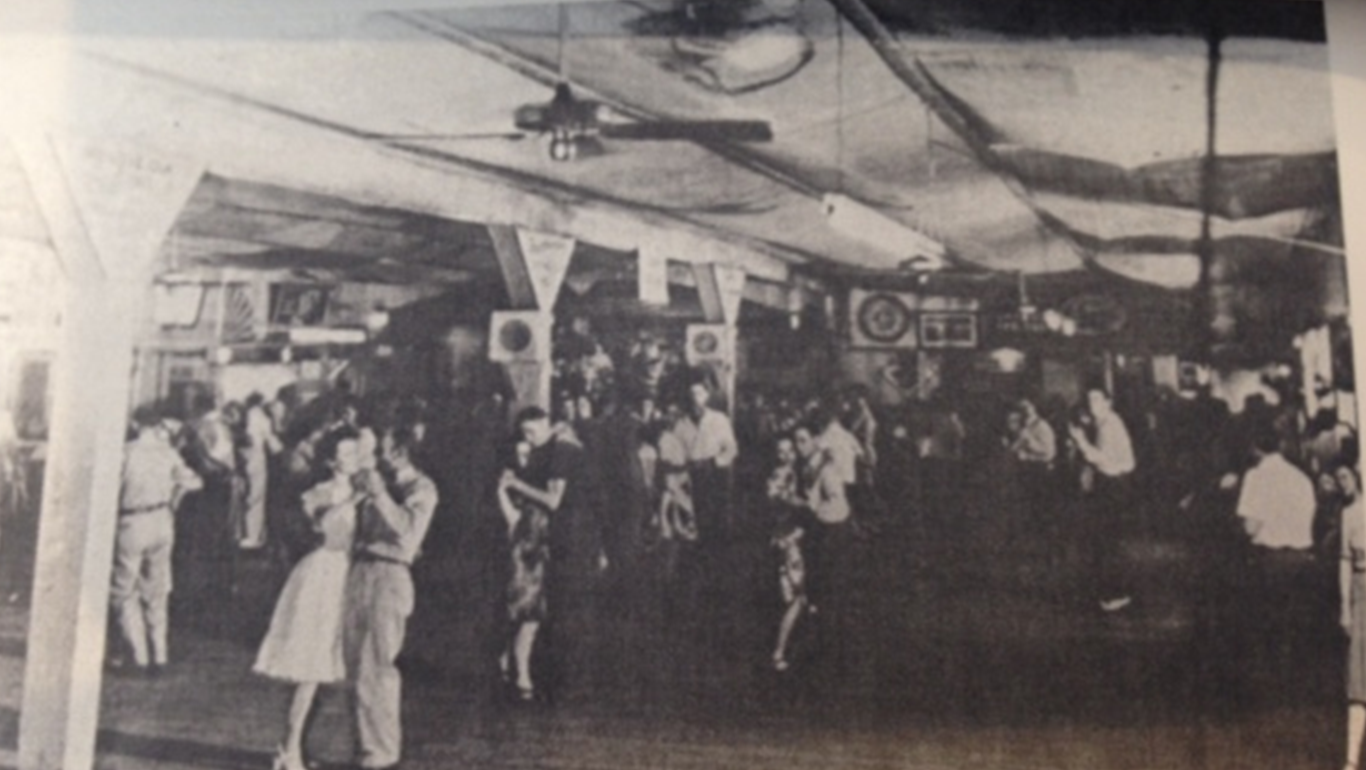Milton Brown & His Musical Brownies
Lyrics
The Eyes of Texas are upon you, all the live long day The Eyes of Texas are upon you, You can not get away Do not think you can escape them At night or early in the morn- The Eyes of Texas are upon you Till Gabriel blows his horn The Eyes of Texas are upon you, all the live long day The Eyes of Texas are upon you, You can not get away Do not think you can escape them At night or early in the morn- The Eyes of Texas are upon you Till Gabriel blows his horn The Eyes of Texas are upon you Till Gabriel blows his horn
Milton Brown and his group, the Musical Brownies, were the pioneers of western swing music. Brown and his musicians were among the earliest pioneers of what was later called western swing, a mixture of country, blues, jazz, pop, and other musical forms. Western swing is also described as ballroom dance music with a Western flair, played primarily on stringed instruments. However, horns were and are used in many Western-swing bands. Other characteristics include an emphasis on a heavy rhythm sound for dancing and improvisation. Western swing music is infused with songs from many cultures. “The Anglo-Saxon fiddle came to Texas from the British Isles; jazz, blues, and gospel from our African-American population; mariachi and conjunto from the Mexican people; the polka and waltz beat from our German and Czech ancestors; and the Cajun French Fiddle and accordion music from Louisiana” (States Symbol USA). Western swing can be seen as a musical melting pot representing the diverse groups that have contributed to Texan culture, from music to food.

Milton Brown and his band played together from 1932 to 1936 until Milton Brown’s untimely death in 1936 after a car accident on the way home from Crystals Springs Dance Hall. Milton Brown was born in 1903 and grew up in Stephenville, Texas. In 1931 Milton became the lead vocalist for Bob Will’s band and began playing on the radio show as the “Light Crust Doughboys.” Eventually, Milton left the band in 1932 and formed his musical group, the Musical Brownies. His band began broadcasting on KTAT, a Fort Worth Radio Station, then played at dances at the Crystal Spring’s Pavilion Dance Hall. The band became highly influential during the 1930s in the Forth Worth and Dallas areas. Brown became one of the best vocalists in western swing and influenced Wills’ and other western swing singers. Brown was also the first to use a piano in western swing.

Brown’s band became extremely popular in North and Central Texas and was known beyond the state’s borders. Between 1934 and 1936, it made more than 100 recordings for Victor and Decca. Unforuntualy at the height of his career, Milton Brown died from injuries suffered in an automobile accident in 1936. After Milton’s death, his brother Derwood led the band, but the band’s popularity declined, and the group was no longer within a couple of years. Wills and Brown made Fort Worth the “Cradle of Western Swing.”Milton Brown and his Musical Brownies published the song on March 3, 1936, about a month before his untimely death. The year 1936 was an important year in Texas history, marking the 100th anniversary of Texas’s independence. Texans celebrated the 100th anniversary of Texas independence with statewide festivities.

However, Milton Brown was not the first one to compose and sing a version of this song. The song was first sung at a minstrel show to benefit the University of Austin track team on May 12, 1903. William L. Prather, the president of UT from 1899 to 1905, had heard in his student days, “The eyes of the South are upon you,” stated by the president of Washington College. Prather altered the saying for use at the University of Texas. The song was originally written by John Lang Sinclair, the director of the band at UT, to the tune of “I’ve Been Working on the Railroad.” Later a former Fort Worth musician, Wylbert Brown, would then copyright the words in 1928, hoping the song would become the official state song during the Texas Centennial in 1936. It wouldn’t be until the 1980s that it would become the official School song of UT.
However, in recent years, the song has become controversial due to its racial undertones. Recent reports have found that Prather more likely found his inspiration from Confederate brigadier general John Gregg of Texas. Gregg reportedly told his soldiers, “The eyes of General Lee are upon you!” (Levin Texas Monthly). Many students and faculty have voiced their opinions against the song and are calling for a change to the lyrics or refusing to sing the song at sporting events. As of 2021, the President of UT has said the song would remain.
References:
Charles R. Townsend, “Milton Brown and His Musical Brownies,” Handbook of Texas Online, accessed February 09, 2023, https://www.tshaonline.org/handbook/entries/milton-brown-and-his-musical-brownies.
Levin, Joe. “The Damning History behind UT’s ‘The Eyes of Texas’ Song.” Texas Monthly, 17 June 2020, https://www.texasmonthly.com/arts-entertainment/ut-austin-eyes-of-texas-song-racist/.
Margaret C. Berry, “Eyes of Texas,” Handbook of Texas Online, accessed February 18, 2023, https://www.tshaonline.org/handbook/entries/eyes-of-texas.
“Milton Brown and His Brownies.” Discogs, https://www.discogs.com/artist/1381059-Milton-Brown-And-His-Brownies.
“Texas History Timeline.” Bullock Texas State History Museum, https://www.thestoryoftexas.com/discover/texas-history-timeline.
“Western Swing.” State Symbols USA, 6 Jan. 2017, https://statesymbolsusa.org/symbol-official-item/texas/state-dance-music-symbol/western-swing.
